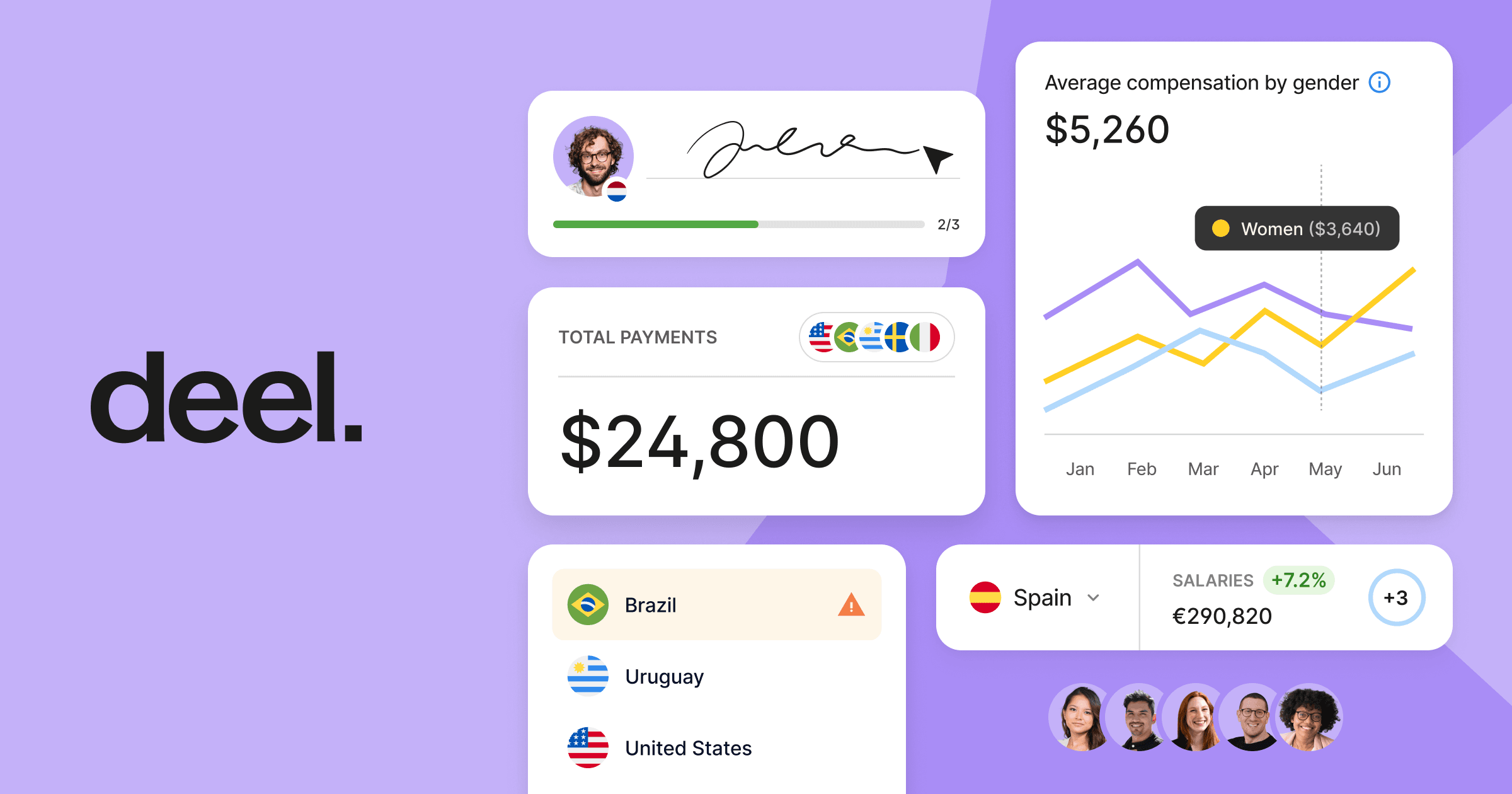Issue #13 • Oct 2, 2025

Welcome Back, Future of Work By HR Stacks!
We cut through the noise to bring you the most important updates in HR Tech, AI, and the changing world of work. From new AI colleagues clocking in to shifts in workforce strategy, here’s what you need to know this week.
If you haven’t yet, subscribe to the weekly HRstacks newsletter and keep us in your primary inbox.
In Today’s Edition:
AI in HR: A Paradigm Shift, Not Just a Tech Upgrade
EEOC Pulls Back “Disparate Impact” Tool: Workers Left With Weaker Shield
HR’s AI Pivot: CHROs Brace for a Talent Tech Tsunami
Ten Urgent Legal Tasks For Employers This October
Mastek Modernizes Harmony Australasia’s HR with Oracle HCM Cloud
Workers are opting out of promotion “conscious unbossing.”
More About RemoFirst - Hire Globally, Simply
Expanding into new countries usually means wrestling with local labor laws, taxes, and endless paperwork. RemoFirst makes that process painless.
With coverage in 185+ countries, RemoFirst acts as your Employer of Record, handling compliance, payroll, benefits, and onboarding so you can hire full-time employees or contractors anywhere without opening local entities.
Why it matters for growing teams:
Flat, transparent pricing starting at $199/employee/month
Fast onboarding that gets new hires working in days, not months
Support for payroll in local currencies with compliant contracts
An optional global benefits plan to keep remote teams cared for
Whether you’re hiring your first overseas engineer or scaling into five new markets, RemoFirst helps you focus on building your team instead of navigating red tape.

IBM's AI Initiatives Lead To Significant Productivity Gains
At The Economic Times Future Forward Singapore Chapter 2025, HR leaders emphasized that AI's role in human resources transcends mere technological deployment; it represents a fundamental cultural transformation.
Subhankar Roy Chowdhury of Lenovo highlighted that the primary challenge lies in shifting organizational culture to embrace AI as an opportunity rather than a threat.
Similarly, Gemini Aryanto of Kopi Kenangan advocated for prioritizing AI investments in employee engagement to foster a positive environment before applying AI in hiring processes.
Lokesh Nigam of Konverz AI underscored that AI should be viewed as a behavioral transformation, akin to the internet revolution, rather than just another technological advancement.
Lenovo's approach involves integrating AI into business strategy, focusing on change management, capability development, employee experience, and ethical considerations.
Meanwhile, Kopi Kenangan leverages AI-powered learning management systems to provide scalable training across its extensive network of stores.
Collectively, these perspectives suggest that the successful integration of AI in HR hinges on cultural adaptation, ethical implementation, and strategic alignment with organizational goals.
Why It Matters:
Viewing AI in HR as a paradigm shift emphasizes the need for organizations to foster a culture that embraces change, upskills employees, and aligns technological advancements with strategic objectives.
This approach ensures that AI enhances human potential and organizational effectiveness, rather than merely automating existing processes.
EEOC Halts Use Of “Disparate Impact” In Workplace Discrimination Probes
The U.S. Equal Employment Opportunity Commission (EEOC) has decided to end investigations into discrimination claims based solely on disparate impact, policies that may seem neutral but disproportionately burden certain groups.
According to a September memo, pending cases must be closed by September 30, following a 2025 executive order that mandates the deprioritization of that legal theory.
Critics warn this move weakens legal recourse against systemic discrimination, especially in AI-driven hiring, and shifts the burden to individuals to sue privately.
Some firms, like Indeed, vow to continue disparate impact analyses internally to guard against bias.
Why It Matters
Disparate impact has long been a key tool for uncovering hidden, structural discrimination, especially in AI systems where bias often emerges unintentionally. The EEOC’s retreat narrows oversight at a moment when algorithmic fairness is increasingly vital.
Agentic AI Takes Center Stage: What HR Leaders Must Do Now
IBM’s AI-powered productivity report underscores a transformation in HR: while only 53% of firms currently use AI for workforce analytics, CHROs are already prioritizing automation in recruitment (62%), self-service (61%), and talent acquisition (52%).
Agentic AI, which infers and acts autonomously, is seen as a game-changer — forecasting staffing needs, recommending training and staffing moves without human commands.
In practice, IBM now handles 94% of HR tasks via AI, having slashed HR headcount to reallocate resources toward higher-value domains.
Key Takeaways:
Rapid shift ahead: CHROs must evolve from task managers to architects of hybrid human-AI workforces.
Reskilling urgency: Over half of employees need upskilling to keep pace with evolving roles.
Redefined HR: As agents automate routine HR work, human leaders must focus on culture, ethics, strategy, and AI oversight.
Workforce growth, not shrinkage: While HR roles shrink, overall headcount may grow as firms invest in AI-enabled capabilities.
MORE TRENDING NEWS
1. Government Shutdown Disrupts Federal Services
The U.S. government entered a shutdown on October 1, halting non-essential federal operations. Employers may face delays in regulatory approvals, contract awards, and workforce support programs. It's crucial to assess how these disruptions impact your operations and plan accordingly. Read More
What for HR leaders: Stay informed about the shutdown's duration and its specific effects on your industry to mitigate potential disruptions.
2. Mastek Transforms Harmony Australasia’s HR with Oracle HCM Cloud and Redwood UX/UI
Mastek completes a 56-week Oracle HCM Cloud rollout for Harmony Australasia, unifying HR across five legal entities and two business units while boosting employee experience with AI-driven automation and Oracle Redwood UX/UI. Read More.
What for HR leaders: Implement unified HR platforms to enhance efficiency, compliance, and employee engagement.
3. The Leadership Void: Gen Z's Reluctance to Step Up
Surveys show many employees, especially Gen Z, now prefer deep individual expertise or lateral moves over supervisory roles, citing high stress, low reward, and mental-health concerns.
Organisations are seeing managers leave or decline promotions rather than take on bigger, unsupported spans. Read More
What for HR leaders: Prioritize flexible, purpose-driven leadership models that emphasize well-being and autonomy.
USEFUL TOOLS
IMPORTANT STATS









